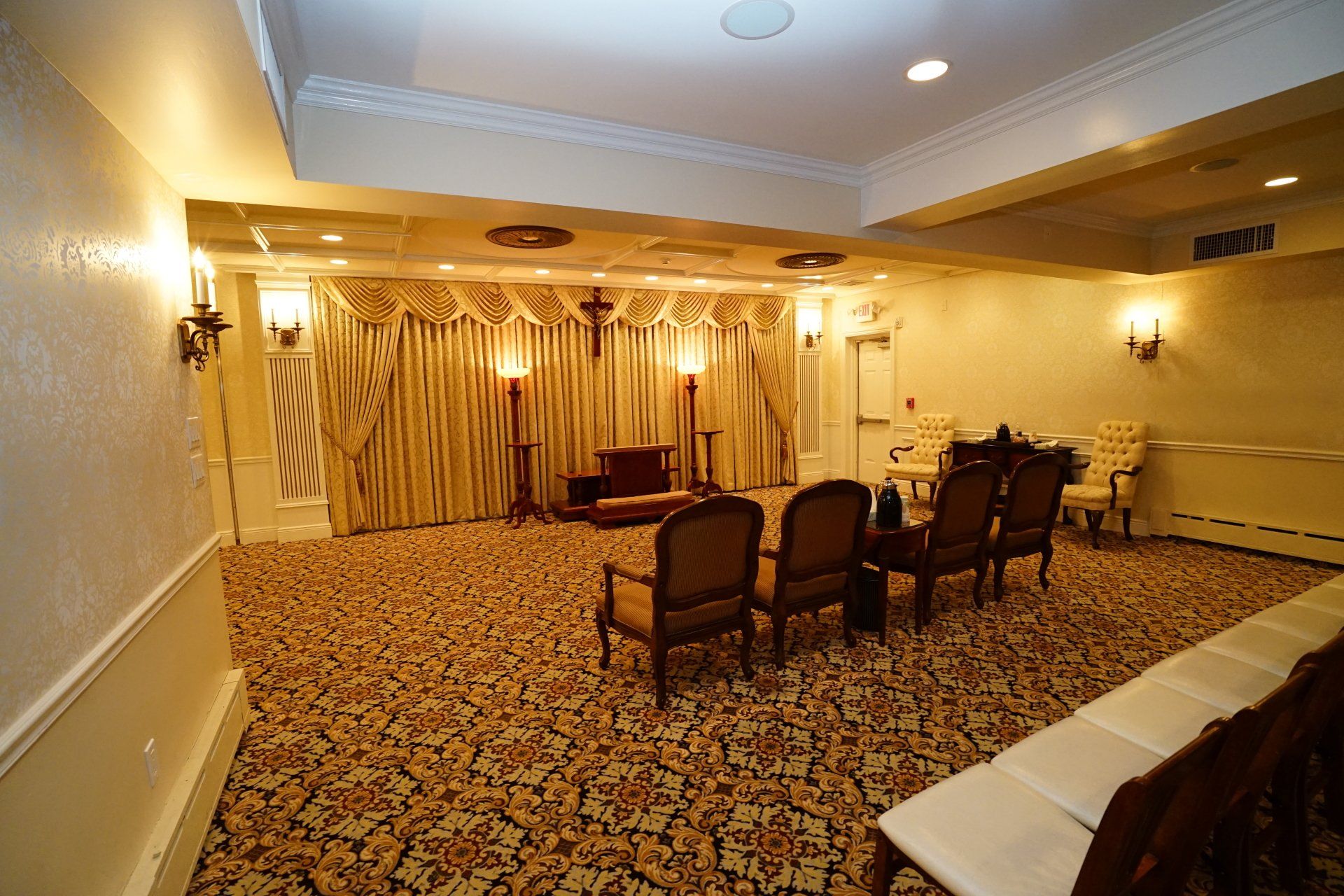Understanding How Pre-Arranged Funeral Plans Work
How to Pre-Plan a Funeral
Key Highlights
- Pre-arranging your funeral relieves your family from making difficult decisions during a time of loss.
- These plans typically cover expenses such as funeral home services, casket, embalming, transportation, and more.
- You can opt for a guaranteed plan, locking in today's prices to protect against future inflation.
- Options for prepayment include a lump sum, installments, or a dedicated insurance policy.
- Be sure to communicate your funeral plan to your family, ensuring they understand your wishes.
Introduction
Navigating funeral arrangements while dealing with the loss of a loved one can be very hard. Planning a funeral in advance can help you feel more at peace. It shows that you have thought about this important part of life. This makes things easier for your family during a tough time. Plus, it lets you create a service that truly shows your final wishes. This way, your loved ones do not have to guess what you would have wanted.
The Basics of Pre-Arranged Funeral Plans
Pre-arranged funeral plans are agreements you make with funeral homes. They help cover the costs and details of your funeral ahead of time. You get to decide what you want for your funeral service, memorial, cremation, or burial. This careful planning takes away stress for your family during a sad time. They can then think about remembering you instead of handling money and plans.
Defining Pre-Arranged Funeral Plans and Their Importance
Pre-arranged funeral plans are detailed choices made while you are still alive. They outline your desired funeral arrangements, services, and final wishes. These plans are more than just about money. They let you personalize your service. You can choose your favorite funeral home, casket, and even the music and readings.
Pre-arranging your funeral is important because it gives peace of mind for you and your family. When you make these choices ahead of time, you take away the pressure from your family. They do not have to guess what you wanted during a hard time. This allows them to focus on celebrating your life instead of worrying about funeral arrangements. In addition, it helps make sure your funeral matches your beliefs and wishes, turning a tough moment into a special tribute.
Types of Pre-Arranged Plans Available in the United States
The United States has many funeral plans for different needs and likes. Here are the common types:
- Trust-funded pre-need contracts: Money is put into a saving trust that earns interest and is taken care of by the funeral home.
- Insurance-funded pre-need contracts: A life insurance policy is bought, so the money for funeral expenses comes from the death benefit.
- Guaranteed price contracts: The price for services and products is agreed upon ahead of time and will not change.
- Non-guaranteed contracts: Services are listed, but prices can change depending on the market when you pass away.
Before choosing a plan, look closely at the details. Check if it can be changed or moved to another funeral home and if there are any extra fees. These things can affect how flexible or affordable the plan is.
Key Components of Pre-Arranged Funeral Plans
Pre-arranged funeral plans usually have two main parts: planning the funeral service details and handling the costs that come with it. The first part is about sharing what you want for the service, like if you want a burial or cremation, what kind of casket or urn to use, and any religious or personal traditions you want to include.
The second part is about paying for the pre-arranged plan. This can be done by making one big payment, setting up payment plans, or using part of your life insurance policy to pay for funeral expenses.
Services Typically Included in Pre-Arranged Plans
Pre-arranged plans usually cover many services to help with a complete funeral arrangement.
- Basic services: This includes the main services from the funeral director and staff. It covers transporting the deceased, embalming, preparing the body, and managing administrative costs.
- Visitation or viewing: You can add arrangements for a viewing or wake so loved ones can pay their respects.
- Funeral ceremony: You need to choose the type of service. It can be religious or non-religious. You can also share your preferences for music, readings, or eulogies.
- Final disposition: This part specifies if you want cremation or burial. It also includes costs like the urn or casket and cemetery fees, if needed.
Keep in mind that the Funeral Rule says funeral homes must give a General Price List (GPL). This helps you to choose the services for your pre-arranged plan carefully. Take your time to look over these choices and adjust the plan to fit your wishes and budget.
Choosing Between Burial and Cremation Options
A key choice in your funeral plan is whether to pick burial or cremation. Burial is the usual choice. It means being placed in a cemetery plot. On the other hand, cremation can save you money because it does not require embalming or a burial plot.
If you choose burial, think about costs like the cemetery plot, headstone, and any maintenance fees. With cremation, you have more options for what to do with the ashes. You can scatter them, place them in a columbarium, or even put them into memorial jewelry.
In the end, this choice depends on your beliefs, family traditions, and financial situation.
Financial Aspects of Pre-Arranging a Funeral
Taking care of the money matters for your funeral ahead of time is important. It helps you see the costs and makes sure your family won't face sudden bills when they are sad. Talking about death and money can be awkward, but it's an important part of planning your funeral.
Think of this as a way to get control, reduce future money worries, and ensure your send-off fits your budget and wishes. This way, you can leave a caring legacy for your family.
Payment Options for Pre-Arranged Funerals
You have several flexible payment options for pre-arranged funerals. These options help you pick what works best for your budget.
One choice is to pay for the funeral in full right away. This way, you lock in the prices at today’s rates and protect yourself from rising costs.
Another choice is using an installment plan. Many funeral homes provide this service, so you can pay over time. These plans usually have fixed interest rates. This can make it much easier to manage your budget.
You could also look into getting a specific life insurance policy. Or, you can use part of your current life insurance policy for funeral expenses. This gives financial security for your loved ones after you are gone.
Talk with the funeral home and financial advisors. They can help find the best payment plan that fits your needs and financial situation.
Legal Considerations and Protections
Planning a funeral ahead of time shows great care. But it’s also important to know the rules about pre-arranged funeral plans. You should learn about the laws in your state regarding these plans.
These laws can be very different in each state. They cover things like what needs to be in the contract, what to do if you move or change your mind, and how to protect your money that you have paid in advance.
Contracts and Agreements: What to Look For
When you sign up for a pre-arranged funeral plan, take the time to carefully read the contracts and agreements with the funeral home. Pay attention to the important details that protect your interests.
Make sure that the contract clearly lists all the goods and services included in the plan. There should be no confusion. It’s important to know if the price is locked in or might change because of future costs for funerals. The contract should also tell you about cancellation and refund policies. It should explain how to change or cancel your plan if you need to.
Also, check if the funeral home has a "substitution of goods and services" rule. This rule allows changes if an item or service you picked is not available. Lastly, confirm if the plan can be transferred to another funeral home if you move.
State Regulations and Consumer Rights in the US
The funeral industry in the United States follows both federal and state laws to protect consumer rights. This includes rules about funeral prearrangement. At the federal level, the Federal Trade Commission has a rule called the "Funeral Rule." This rule requires funeral providers to give customers a General Price List (GPL) when they ask. The GPL shows the goods and services available and stops providers from misleading customers about legal requirements.
State laws about pre-need arrangements can be very different. Some states require licenses for pre-need sellers. Other states have strict rules on how to handle funds and require specific details in contracts.
It's important to check the rules specific to your state. You can also talk to a consumer protection agency or a lawyer who knows about funeral law. This will help you understand your rights and make sure that everything aligns with local laws.
Benefits and Drawbacks of Pre-Arranging Your Funeral
It's important to plan your funeral ahead of time. This can help reduce stress for your family and make sure your wishes are followed. However, you should consider both the good and the bad sides.
Think about your own situation, your money, and any changes that might happen in the future that could impact your funeral arrangements.
How Pre-Arranging Can Ease Family Burdens
Imagine your family dealing with sadness while trying to plan a funeral. They may wish to know your wishes without you having talked about them. This can be a very emotional time. By planning your funeral ahead of time, you can show great love. This helps your family focus on healing and remembering you.
When you write down your choices for the service, like the music and readings, you help create a meaningful goodbye. This also shows your values and personality. Having these plans stops family members from guessing and reduces the chance of fights during a tough time.
Also, taking care of money matters beforehand helps your family’s finances. They may not be ready to handle surprise costs in a time of loss. Planning your funeral gives peace of mind and financial security for your loved ones.
Potential Pitfalls and How to Avoid Them
Arranging your funeral ahead of time can give you peace of mind. However, there are a few things to think about. One worry is that the funeral home might go out of business, which could put your pre-paid money at risk.
To avoid this, make sure to check the funeral home's financial health and reputation before you sign any contracts. Choosing a trust-funded or insurance-funded plan can keep your money safer since a third party will take care of it.
It's also very important that your family knows about the pre-arranged plan. They should be aware of where the contract and payment details are kept. Talk clearly about your wishes. Write them down to help your loved ones manage your funeral arrangements without extra stress or confusion.
Conclusion
In conclusion, knowing about pre-arranged funeral plans helps you make good choices for your final arrangements. When you look into the different types of plans, think about your finances, and understand the legal protections, you can gain peace of mind for yourself and your loved ones. Pre-arranging a funeral can lighten the load for your family during a tough time. It also lets you create arrangements that match your wishes. It is important to think carefully about the advantages and disadvantages to choose the best options for your future. Planning ahead gives you control over how people will remember you and makes it easier for your family by reducing tough decisions.
Frequently Asked Questions
Can I change my pre-arranged funeral plan later?
Yes, you can usually change your funeral plan as your wishes change. Just reach out to your funeral home or insurance company and ask how to make the changes. It is important to review and update your plan from time to time so it matches your final wishes.
Are there any financial benefits to prepaying for a funeral?
Prepaying for your funeral can help you secure today’s prices. This keeps your family safe from higher costs in the future. It also makes sure that money is saved for funeral expenses. This may simplify some estate matters for your beneficiaries in certain states.
How do pre-arranged funeral plans work with insurance policies?
You can use your current life insurance policy or buy a final expense insurance policy just for your funeral costs. The money from the death benefit can be used by the beneficiary, usually a family member, to pay for the funeral expenses. This makes it easier for your loved ones to handle the payments.
Get a Free Consultation or Contact us Today!
Share











